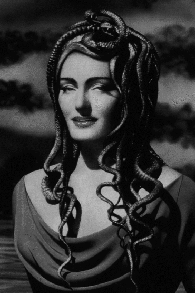The authors seek to examine the “dialectical relationship between thought and action.”
 Their starting point is that men “adhere to opinions of all sorts with a variable intensity.” This means that we accord all our beliefs different truth values, based on the evidence and reasoning we have to support them.
Their starting point is that men “adhere to opinions of all sorts with a variable intensity.” This means that we accord all our beliefs different truth values, based on the evidence and reasoning we have to support them.
“Those who hold facts and truths to be the sole norms for guiding opinion will endeavor to attach their convictions to some form of evidence that is indubitable and beyond discussion.” But is there such a thing? Maybe in theory, but what about the real world of human affairs? We can’t afford to “scorn and reject all the techniques of reasoning characteristic of deliberation and discussion” (argumentation). As soon as controversy arises, whenever we don’t have absolute proof, we are in the realm of argumentation.
They point out the common philosophical distinction made between “judgements of reality” and “value judgements.” This distinction has not been successfully maintained, because we can’t figure out a science of value judgements and we haven’t been able to define what makes one reality and another a value.
If reality judgements are going to be effective, they must be free of all ambiguity. They must mean the same thing for everyone, without any controversy. There are only two possible positions that could support this: the idea that language reflects reality or that language is an arbitrary creation of an individual.
Neither are true.
 What is missing is the social element. “All language is the language of a community.” Words and their meaning can only be understood in the context of a society. Like other elements of culture, it is our agreement about their meaning that gives them that meaning. This means that the way we use language is never indisputable. It is always up for debate, subject to change as a society changes.
What is missing is the social element. “All language is the language of a community.” Words and their meaning can only be understood in the context of a society. Like other elements of culture, it is our agreement about their meaning that gives them that meaning. This means that the way we use language is never indisputable. It is always up for debate, subject to change as a society changes.
“Only the existence of an argumentation that is neither compelling nor arbitrary can give meaning to human freedom, a state in which a reasonable choice can be exercised.” Freedom and argumentation are inextricably linked. If all language and all arguments were purely representative of reality, if language could speak an undeniable truth, there would be no choice, and man would not truly be free. He would be predetermined to act according to the laws of nature.
On the other hand, if man was purely irrational, there would be no argumentation, only suggestion and force. Argumentation, and rhetoric, operates in the space between these two positions.
“The theory of argumentation will help to develop what a logic of value judgements has tried in vain to provide, namely the justification of the possibility of a human community in the sphere of action when this justification cannot be based on a reality or objective truth.”
Argumentation (and rhetoric) has been neglected for too long because the truth it has produced is not necessarily objective. But objective truth is possible only in theory. To be able to act effectively in our world, we need rhetoric to guide us to a probable truth in the absence of a compelling reality. To act in the world, we need to be satisfied with what is likely.
Doubt is uncomfortable, but certainty is absurd. -Voltaire
